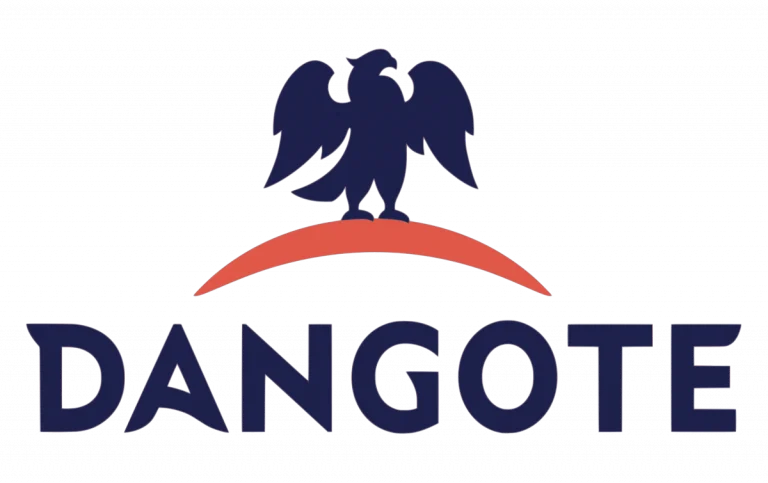Business
Customs Release Guidelines For Zero Duty On Food Items

The Nigeria Customs Service (NCS), on Wednesday, announced President Bola Tinubu’s approval for the implementation of a Zero Percent Duty Rate (0%) and Value Added Tax (VAT) exemption on selected basic food items.
Customs spokesman Abdullahi Maiwada said in a statement said the presidential approval was communicated through the Minister of Finance and the Coordinating Minister of the Economy, Olawale Edun.
This policy is effective from 15th July 2024 and will remain in force until 31st December 2024, Maiwada added.
He said the move would alleviate hardship faced by Nigerians due to high prices of essential food items.
READ ALSO: FG Blocks N83bn Protest Funds, Arrests Political Collaborators
“However, it is important to emphasise that while this temporary measure is intended to address current hardships, it does not undermine the long-term strategies put in place to safeguard local farmers and protect manufacturers,” the Customs spokesman noted.
He added that the implementation of the policy would focus on addressing the national supply gap.
“To participate in the zero-duty importation of basic food items, a company must be incorporated in Nigeria and have been operational for at least five years. It must have filed annual returns and financial statements and paid taxes and statutory payroll obligations for the past five years.
“Companies importing husked brown rice, grain sorghum, or millet need to own a milling plant with a capacity of at least 100 tons per day, operated for at least four years, and have enough farmland for cultivation.
READ ALSO: PROTEST: FG Finally Suspend Import Duty On Essential Food Items
“Those importing maize, wheat, or beans must be agricultural companies with sufficient farmland or feed mills/agro-processing companies with an out-grower network for cultivation,” he said.
FULL LIST
He listed basic food items eligible for the zero percent duty rate as follows:
I. Husked Brown Rice
II. Grain Sorghum
III. Millet
IV. Maize
V. Wheat
VI. Beans
“The Federal Ministry of Finance will periodically provide the NCS with a list of importers and their approved quotas to facilitate the importation of these basic food items within the framework of this policy.
“The policy requires that at least 75% of imported items be sold through recognised commodities exchanges, with all transactions and storage recorded. Companies must keep comprehensive records of all related activities, which the government can request for compliance verification.
READ ALSO: NATIONAL YOUTH SERVICE…Policy Change Threatens HND Graduates’ Participation
“If a company fails to meet its obligations under the import authorisation, it will lose all waivers and must pay the applicable VAT, levies, and import duties. This penalty also applies if the company exports the imported items in their original or processed form outside Nigeria,” the Customs spokesman added.
Meanwhile, the Comptroller-General of Customs (CGC), Adewale Adeniyi, reaffirmed the commitment of the agency to streamlining processes that will facilitate Tinubu’s food security initiative.
He made this known on Tuesday, August 13, 2024, at Nigeria Customs Service Headquarters in Abuja, during an official launch of a book, ‘Impactful Public Relations in Customs Management’.
According to the CGC, the aim is to ensure the swift importation of food items, adhering to standards that reduce costs and lower consumer prices.
The book launch coincided with the 2nd Economic Confidential Annual Lecture, where the Comptroller-General further stressed the strong commitment of the Customs Service to addressing food security challenges through targeted measures to intensify agricultural production.
Business
NNPCL Announces Restoration Of Escravos-Lagos Pipeline

The Nigerian National Petroleum Company Limited (NNPCL) has announced the complete restoration of the Escravos-Lagos Pipeline System (ELPS) in Warri, Delta State, following the recent explosion on the asset.
The chief corporate communications officer (CCCO) of the nation’s oil company, Andy Odeh, in a statement, said that the pipeline is fully operational, reiterating the company’s resilience and commitment to energy security.
“NNPC Limited is pleased to announce the successful restoration of the Escravos-Lagos Pipeline System (ELPS) in Warri, Delta State.
READ ALSO:Fuel Price Cut: NNPCL GCEO Ojulari Reveals Biggest Beneficiaries
“Following the unexpected explosion on December 10, 2025, we immediately activated our emergency response, deployed coordinated containment measures, and worked tirelessly with multidisciplinary teams to ensure the damaged section was repaired, pressure-tested, and safely recommissioned.
“Today, the pipeline is fully operational, reaffirming our resilience and commitment to energy security. This achievement was made possible through the unwavering support of our host communities, the guidance of regulators, the vigilance of security agencies, and the dedication of our partners and staff.
“Together, we turned a challenging moment into a success story, restoring operations in record time while upholding the highest standards of safety and environmental stewardship.
“As we move forward, NNPC Limited remains steadfast in its pledge to protect our environment, safeguard our communities, and maintain the integrity and reliability of our assets. Thank you for your trust as we continue to power progress for Nigeria and beyond,” the statement read.
Business
Dangote Unveils 10-day Credit Facility For Petrol Station Owners

The Dangote Group has announced a 10-day credit facility backed by a bank guarantee for petrol station owners and dealers, alongside free direct delivery and other incentives, as part of a new supply arrangement.
The company disclosed this in a statement posted on its official X handle on Tuesday, inviting petrol station operators across the country to register to benefit from the offer.
According to the statement, participating dealers will enjoy “a 10-day credit facility backed by a bank guarantee,” with a minimum order requirement of 5,000 litres.
“Our free direct delivery service will commence soon,” the group said, adding that the offer is open to “all petrol station owners and dealers.”
READ ALSO:Dangote Sugar Announces South New CEO
The Dangote Group further called on operators to register their stations to access the supply arrangement.
“Register your petrol stations today to benefit from our competitive gantry price,” the statement read.
The company also disclosed that petrol supplied under the arrangement will be sold at a gantry price of ₦699 per litre.
For enquiries, the group provided the following contact numbers: 0802-347-0470, 0809-324-7070, 0809-324-7071 and 0203.
READ ALSO:Dangote Refinery Dispute: PENGASSAN Suspends Strike After FG Intervention
The announcement follows a recent petrol price adjustment by the Dangote Petroleum Refinery.
The PUNCH earlier reported that the refinery reduced its ex-depot petrol price from ₦828 to ₦699 per litre, representing a ₦129 cut or a 15.58 per cent reduction.
An official of the refinery, who spoke to PUNCH Online on condition of anonymity, confirmed the adjustment, saying, “The refinery has reduced petrol gantry price to ₦699 per litre.”
The new price reportedly took effect on December 11, 2025, marking the 20th petrol price adjustment announced by the refinery this year.
Business
JUST IN: Otedola Sells Shares In Geregu Power For N1trn

Billionaire businessman, Femi Otedola, has sold his majority stake in Geregu Power Plc for N1.088 trillion in a deal financed by a consortium of banks led by Zenith Bank Plc.
The Nigerian Exchange, NGX, made this announcement on Monday.
Otedola’s Amperion Power Distribution Company Ltd reportedly held nearly 80 percent of the power generating company.
READ ALSO:N200b Agric Credit Dispute: Appeal Court Slams NAIC, Upholds First Bank Victory
With this new development, Otedola, Chairman of First Holdco Ltd, parent company of First Bank of Nigeria Plc, will reportedly now concentrate on expanding his interest in the Nigerian banking sector, although he still retains some shares in Geregu.
Otedola is said to currently own 17.01 percent of First Bank — its single largest shareholder since the bank was established in 1894.

 Headline4 days ago
Headline4 days agoJUST IN: US Forces Bomb Terrorists Camps In Nigeria

 News5 days ago
News5 days agoOkpebholo Slams ₦25bn Libel Suit On Edo PDP Chairman

 Headline4 days ago
Headline4 days agoUS Dept Of War Shares Video Of Air Strikes In Nigeria

 News4 days ago
News4 days agoPHOTOS: SGF George Akume Weds Ooni’s Ex-Queen

 News2 days ago
News2 days agoEx-Edo Gov Obaseki Reacts As His Cousin Is Beaten, Stripped

 News1 day ago
News1 day agoBREAKING: Anthony Joshua Involved In Road Accident

 News4 days ago
News4 days agoTrump’s Airstrikes: Halt Military Cooperation With US Immediately – Sheikh Gumi Tells Tinubu Govt

 News4 days ago
News4 days agoShehu Sani Reacts To Trump’s Military Strikes In Nigeria

 Headline4 days ago
Headline4 days agoU.S. Lawmaker Reacts To Nigeria, U.S. Airstrikes

 News5 days ago
News5 days agoChristmas: Otuaro Preaches Peace, Unity In N’Delta, Hails Tinubu’s Support For PAP






















